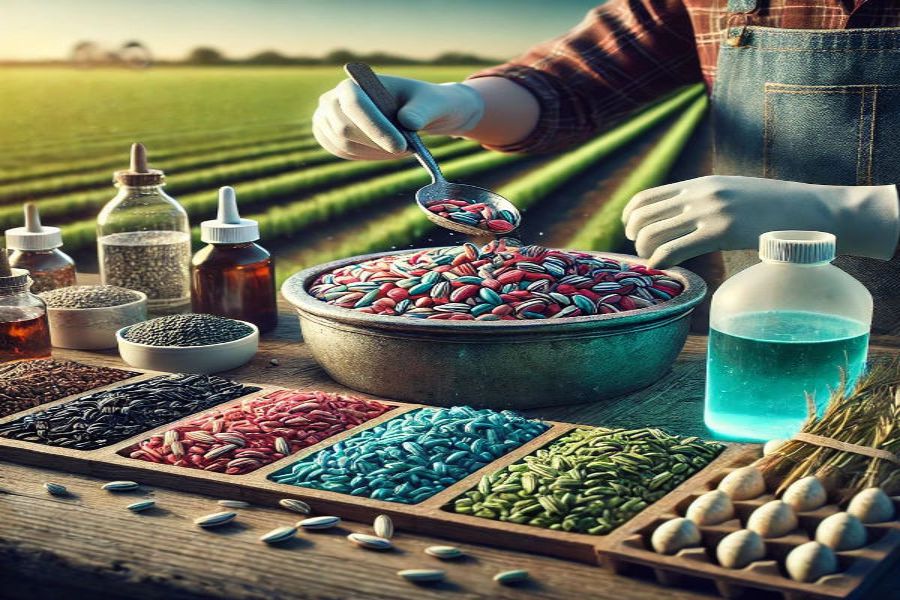1. Protects Seeds from Soil-borne Diseases :
Importance: Seeds are often vulnerable to soil-borne pathogens like fungi, bacteria, and viruses. Seed treatment with fungicides, bactericides, or other protective agents helps shield seeds from these harmful microorganisms.
Benefit: Reduces the risk of seed rot, damping-off disease, and other fungal infections, leading to higher seedling survival rates.
2. Enhances Seed Germination :
Importance: Treated seeds are often more resilient, ensuring that they germinate faster and more effectively under various environmental conditions.
Benefit: Increases uniformity in seedling emergence and ensures stronger, healthier plants from the beginning.
3. Provides Nutrient Boost to Seeds :
Importance: Seed treatment often includes essential nutrients, like micronutrients, that can stimulate initial seedling growth.
Benefit: Encourages early root development and strong plant growth, helping plants establish better in the soil.
4. Protects Against Pests :
Importance: Seeds can be attacked by insects and pests like weevils, beetles, and aphids that affect germination and early growth. Seed treatment with insecticides or biological agents helps deter or kill these pests.
Benefit: Prevents damage to seeds and seedlings, ensuring healthier plants and better crop yield.
5. Improves Crop Establishment and Yield:
Importance: Seed treatments help create the optimal conditions for seeds to establish successfully, even under adverse environmental conditions like drought or cold.
Benefit: Ensures faster and more uniform crop establishment, which ultimately leads to better yield potential and healthier crops.
